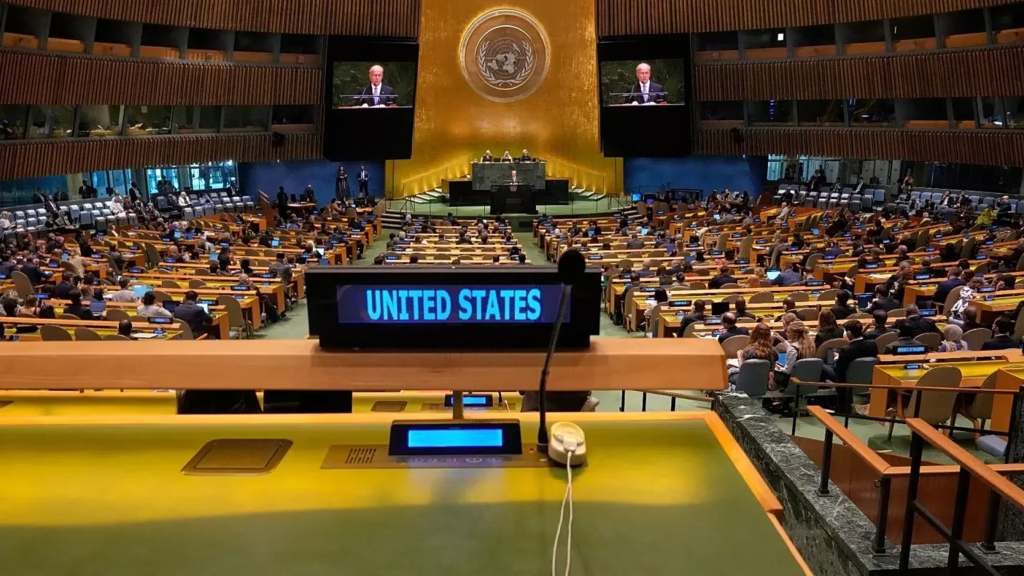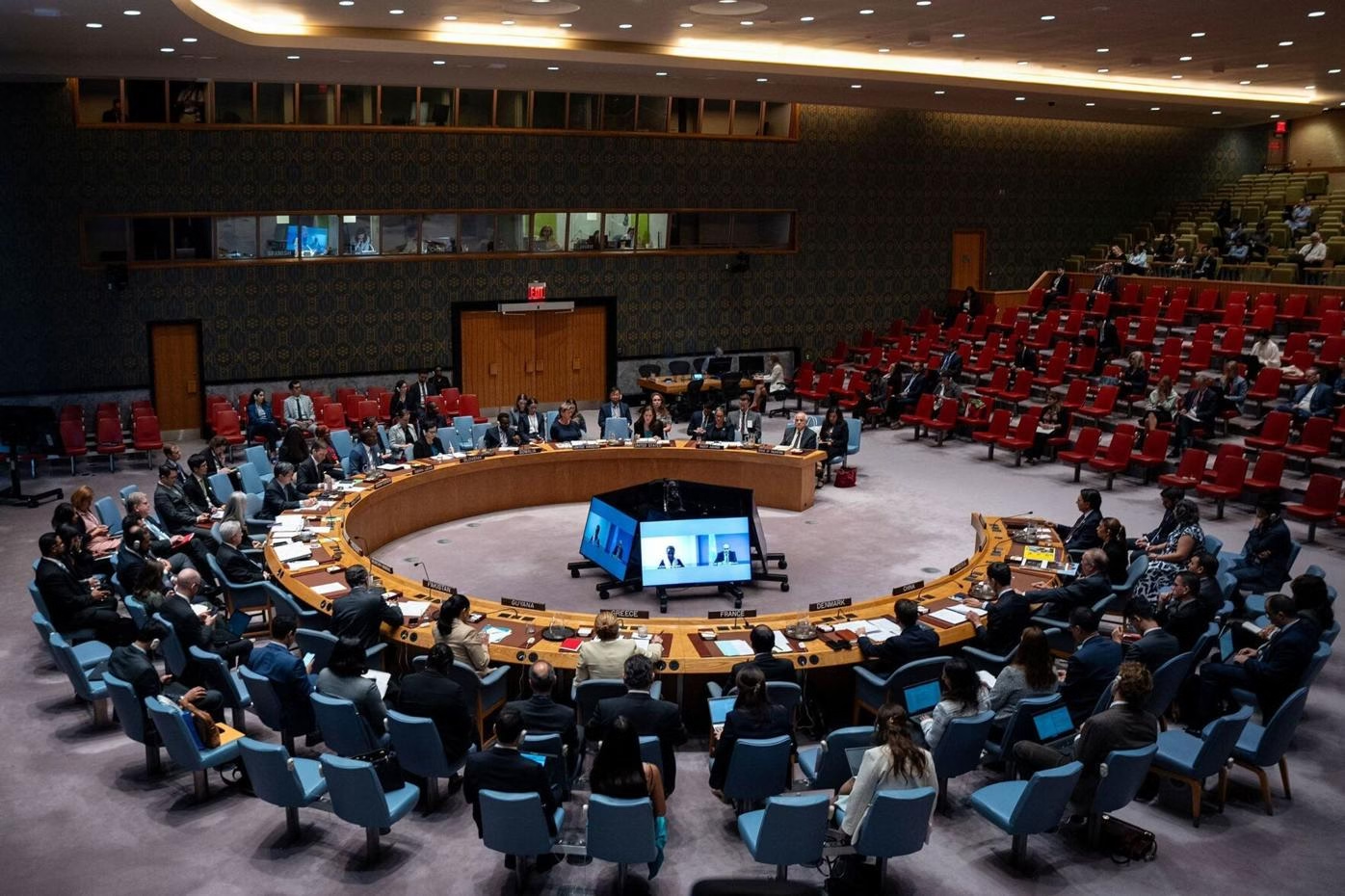
In a move that has sent shockwaves through international diplomacy, the US revoked and denied visas for Palestinian Authority (PA) and Palestine Liberation Organization (PLO) officials just weeks before the United Nations General Assembly (UNGA) convenes in New York. The decision, announced by Secretary of State Marco Rubio on August 29, 2025, marks an unprecedented step in American foreign policy and could spark both legal battles and diplomatic fallout.
The State Department justified the action by citing alleged Palestinian support for terrorism and continued unilateral attempts to secure statehood outside of direct negotiations with Israel. Palestinian leaders, however, slammed the decision as an illegal violation of U.S. obligations under international law and a deliberate attempt to silence their voice at the world’s largest diplomatic stage.
A Break from Diplomatic Tradition
The decision to revoke and deny visas is historic in scope, affecting nearly 80 Palestinian officials, including Palestinian Authority President Mahmoud Abbas. While the U.S. has occasionally restricted visas for individual diplomats in the past, experts say this is the first time an entire delegation has been barred from attending the General Assembly.
According to Secretary Rubio, the U.S. could not, in good conscience, allow representatives of organizations that “support or excuse terrorism” to appear before the world body. The administration argued that the PA and PLO failed to condemn attacks against civilians, continued providing financial stipends to families of militants, and pursued international legal actions against Israel through the International Criminal Court (ICC) and International Court of Justice (ICJ).
“This is a matter of principle and national security,” Rubio said. “The United States will not issue visas to those who undermine peace and support terror under the cover of diplomacy.”
The Legal Controversy: UN Headquarters Agreement
The move, however, raises serious questions about America’s obligations under the 1947 UN Headquarters Agreement, which requires the host nation to grant visas to all accredited diplomats and delegates attending UN sessions in New York.
Palestinian officials immediately denounced the decision, calling it a clear breach of international law. In a statement, the PA Foreign Ministry said:
“This action by the United States is unlawful, politically motivated, and a direct attempt to deny the Palestinian people their right to representation at the United Nations.”
UN officials, caught off guard by the announcement, said they had not been consulted beforehand. A spokesperson confirmed that the UN would raise the matter with Washington and stressed that the host country agreement is fundamental to the functioning of the General Assembly.
Who Is Still Allowed In?
While the sweeping ban blocks most senior officials, the Palestinian UN Mission in New York remains unaffected. Under the UN host country agreement, accredited mission staff retain access to continue their day-to-day work. This means the Palestinians will still have a voice at the UN, but their delegation will be severely limited compared to previous years.
International Reactions
The decision has drawn mixed responses globally:
- Israel praised the U.S. action, with Israeli Foreign Minister Eli Cohen calling it “a courageous stand against hypocrisy at the UN.” He argued that allowing Palestinian officials who support “terror-linked policies” would have undermined global security.
- Palestinian allies, including France, Britain, and Canada, expressed concern. Several of these nations are expected to formally recognize a Palestinian state during this year’s General Assembly, a move opposed by both Washington and Tel Aviv.
- Human rights groups condemned the ban, arguing it sets a dangerous precedent. “If the U.S. can pick and choose which delegations are allowed to attend, it undermines the very credibility of the UN system,” said Amnesty International in a statement.
The Politics Behind the Ban
Beyond national security claims, analysts say the move also carries strong political undertones. President Donald Trump, who returned to the White House in January, has consistently pushed a harder line against the Palestinian leadership. During his first term, Trump cut aid to the PA, recognized Jerusalem as Israel’s capital, and backed Israel’s sovereignty claims over parts of the West Bank.
By denying visas ahead of the UN General Assembly, the administration is reinforcing its pro-Israel stance while sending a clear message that unilateral Palestinian efforts at international recognition will face stiff resistance.
“This is Trump’s foreign policy playbook all over again,” said Aaron David Miller, a former U.S. peace negotiator. “He wants to show loyalty to Israel, punish the Palestinians, and score political points at home by appearing tough on terrorism.”
Diplomatic and Legal Fallout
The consequences of this decision could be far-reaching:
- UN Tensions: The United Nations may formally challenge the U.S. for violating its host country obligations, escalating tensions between the global body and Washington.
- Regional Impact: The move could further erode already fragile U.S.–Palestinian relations, making any progress on peace talks nearly impossible.
- Legal Challenges: Palestinian officials are expected to explore international legal avenues, possibly raising the issue at the International Court of Justice.
- Global Perceptions: The decision may damage America’s reputation as a fair broker in the Middle East, reinforcing the view that Washington is fully aligned with Israel.
What Happens Next?
As the UN General Assembly opens in mid-September, attention will now shift to how the Palestinians manage their restricted presence. Their reduced delegation will still be able to participate through the UN Mission, but their absence at high-profile events will be deeply symbolic.
Meanwhile, U.S. allies will face pressure to respond. Some may proceed with recognizing Palestinian statehood during the session, while others may seek to mediate the growing standoff.
For Washington, the decision underscores a broader strategy: reshaping international institutions to reflect American security priorities, even if it means bending—or breaking—long-standing agreements.
Conclusion
By revoking and denying Palestinian officials’ visas ahead of the UN General Assembly, the United States has escalated an already volatile conflict into the diplomatic arena. Supporters see the move as a justified stand against terrorism, while critics view it as a dangerous breach of international obligations.
Either way, the action cements the U.S. position under Trump as firmly pro-Israel and signals a turbulent road ahead for any efforts toward a two-state solution. With the world watching, the controversy could define the tone of this year’s General Assembly—and reshape global diplomacy in the Middle East for years to come.



